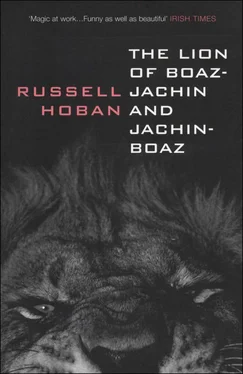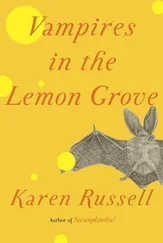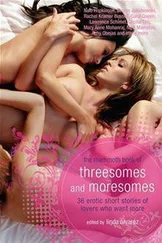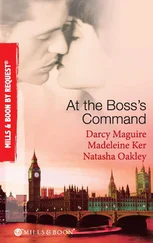Russell Hoban
The Lion of Boaz-Jachin and Jachin-Boaz
The quotation at the head of page 126, ‘It must die because it has had children and is no longer needed’, is based on a line from The Great Chain of Life by Joseph Wood Krutch (Houghton Mifflin Co., Cambridge, Mass., 1956): ‘Volvox must die as Leeuwenhoek saw it die because it has had children and is no longer needed.’ The quotation on page 168, lines 11–14, is taken from Wordsworth’s ‘A Slumber did my Spirit Seal’.
Thou huntest me as a fierce lion: and again thou shewest thyself marvellous upon me.
Job ×: 16
There were no lions any more. There had been lions once. Sometimes in the shimmer of the heat on the plains the motion of their running still flickered on the dry wind — tawny, great, and quickly gone. Sometimes the honeycoloured moon shivered to the silence of a ghost-roar on the rising air.
There were no chariots any more. The chariots, windbereft and roadless in the night, slept with their tall wheels hushed in the tomb of the last king.
The ruins of the king’s palace had been dug out of the ground. There was a chain-link fence all around the citadel where the palace buildings, the courtyards, the temples and the tombs had been excavated. There were a souvenir shop and a refreshment stand near the gates.
The columns and the roof beams, fallen and termitehollowed, had been labelled and cleared away. Jackals hunted among them no more. Where snakes and lizards had sunned themselves the daylight came through the skylights in the roof of the new building that enclosed the great hall where the hunting of the king was carved in stone.
The images of horses and men, chariots and lions, were stained by weather, worn by rain, pocked and pitted by the dust that had stung them when the dry wind howled. New walls were around them now, a new roof was over them. The temperature was controlled by a thermostat. An air-conditioner made a whirring silence.
Jachin-Boaz had a wife and a son, and he lived in a town far from the sea. Pigeons flew up from the square, circled above it, and came down to perch on clay walls, red roof-tiles. The fountain sent up a slim silver jet among old women in black. The dogs knew where everything was, and went through the alleyways behind the shops like businessmen. The cats looked down from high places, disappeared around corners. Many of the women did their washing in stone sinks near the town pump. Tourists going through the town in buses looked out through the windows at the merchants who sold brass and ivory and rugs drinking coffee in the shade of awnings. The vendors of fruit and vegetables smoked in the street.
Jachin-Boaz traded in maps. He bought and sold maps, and some, of certain kinds for special uses, he made or had others make for him. That had been his father’s trade, and the walls of the shop that had been his father’s were hung with glazed blue oceans, green swamps and grasslands, brown and orange mountains delicately shaded. Maps of towns and plains he sold, and other maps made to order. He would sell a young man a map that showed where a particular girl might be found at different hours of the day. He sold husband maps and wife maps. He sold maps to poets that showed where thoughts of power and clarity had come to other poets. He sold well-digging maps. He sold vision-and-miracle maps to holy men, sickness-and-accident maps to physicians, money-and-jewel maps to thieves, and thief maps to the police.
Jachin-Boaz was at the age called middle life, but he did not believe that he had as many years ahead of him as he had behind him. He had married very young, and he had now been married for more than a quarter of a century. Often he was impotent with his wife. On Sundays, when the shop was closed and he was alone with her and his son through the long afternoon, he tried to shut out of his mind a lifelong despair. Often he thought of death, of himself gone and the great dark shoulder of the world for ever turning away from the nothingness of him for ever in the blackness. Lying beside his sleeping wife he would twist away from his death-thought, open-eyed and grimacing in the darkness of the bedroom over the shop. Often he dreamed of his dead mother and father while sleeping in their bed, but very seldom could he remember his dreams.
Sometimes Jachin-Boaz sat alone in the shop late at night. The green-shaded lamp on his desk threw his shadow on the maps behind him on the wall. He felt the silent waiting of all the seeking and finding that lived in the maps hung on the walls, stacked in the drawers of the cabinets. He would close his eyes, seeing clear lines in different colours that marked the migratory paths of fish and animals, winds and ocean currents, journeys to hidden sources of wisdom, passes through mountains to lodes of precious metals, secret ways through city streets to secret pleasures.
Behind his closed eyes he saw the map of his town in which the square, the town pump, the stone laundry sinks, the street of the merchants and he himself were fixed and permanent. Then he would rise from his desk and walk up and down in the dark shop, touching maps with his fingers and sighing.
Jachin-Boaz had for a number of years been working on a map for his son. From the many different maps that passed through his hands, from the reports of his information-gatherers and surveyors, from the books and journals that he read, from his own records and observations, he compiled a great body of detailed knowledge, and that knowledge was incorporated in the map for his son. He added to it constantly, revising and making the necessary corrections to keep it always current.
Jachin-Boaz had said nothing about the map to his wife or his son, but he spent most of his spare time on it. He did not think that his son would follow him in the shop, nor did he want him to. He wanted his son to go out into the world, and he wanted him to find more of a world for himself than he, Jachin-Boaz, had found. He had put aside some money for the boy’s inheritance, but the map was to be the larger part of his legacy. It was to be nothing less than a master map that would show him where to find whatever he might wish to look for, and so would assure him of a proper start in life as a man.
The son of Jachin-Boaz was named Boaz-Jachin. When he became sixteen years old his father decided that he would show him the master map.
‘Everyone in the world is looking for something,’ said Jachin-Boaz to Boaz-Jachin, ‘and by means of maps each thing that is found is never lost again. Centuries of finding are on the walls and in the cabinets of this shop.’
‘If everything that is found is never lost again, there will be an end to finding some day,’ said Boaz-Jachin. ‘Some day there will be nothing left to find.’ He looked more like his mother than like his father. His face was mysterious to his father, who felt that if he tried to guess his son’s thoughts he would be wrong more often than not.
‘That is the sort of thing that young people like to say to annoy their elders,’ said Jachin-Boaz. ‘Obviously there are always new things to find. And as to what has already been found, would you prefer that all knowledge be thrown away so that you might be ignorant and the world new? Is that what they teach you at school?’
‘No,’ said Boaz-Jachin.
‘I am glad to hear that,’ said Jachin-Boaz, ‘because the past is the father of the present, just as I am your father. And if the past cannot teach the present and the father cannot teach the son, then history need not have bothered to go on, and the world has wasted a great deal of time.’
Boaz-Jachin looked at the maps on the walls. ‘The past is not here,’ he said. ‘There is only the present, in which are things left behind by the past.’
Читать дальше












